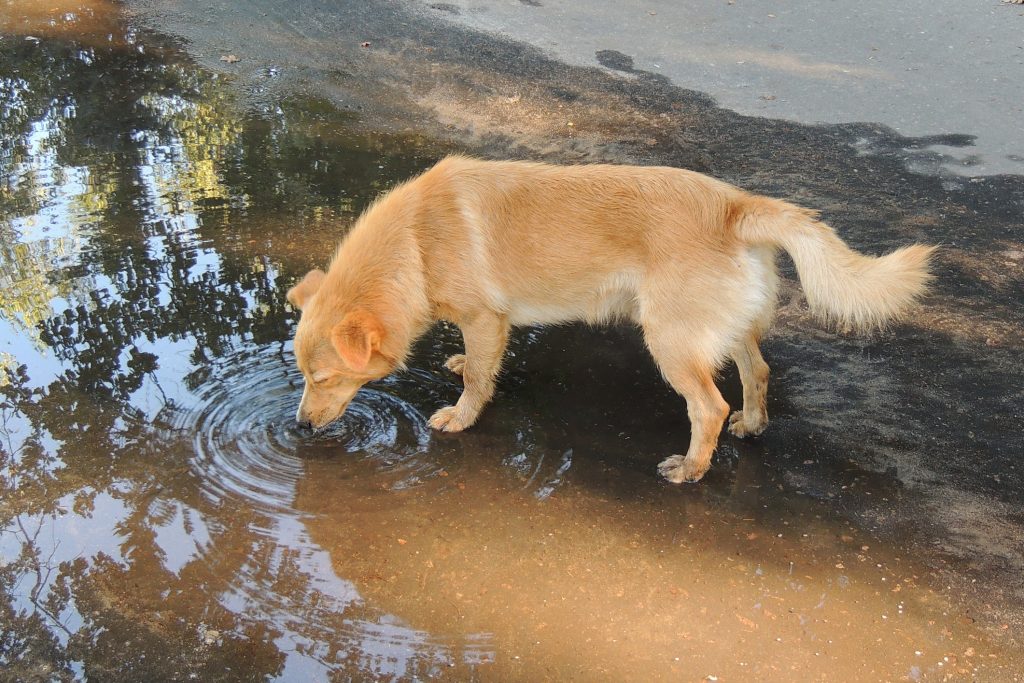
Leptospirosis: Is There a Risk to Your Dog?
 It may not be a name that rolls off of the tongue, or one that is as common as parvo; however, Leptospirosis (‘lepto’) is on the rise and is one of the more serious offenders when to comes to contagious illnesses in our pets. In cities across the United States, we have seen a steady increase in the number of lepto cases, including in the Arlington area.
It may not be a name that rolls off of the tongue, or one that is as common as parvo; however, Leptospirosis (‘lepto’) is on the rise and is one of the more serious offenders when to comes to contagious illnesses in our pets. In cities across the United States, we have seen a steady increase in the number of lepto cases, including in the Arlington area.
The Arlington team wants you to better understand leptospirosis in dogs, what lepto is about, the signs of infection, and what you can do to prevent this serious disease.
Lepto 411
Leptospirosis is caused by the Leptospira bacteria, which is a spiral organism known as spirochetes, and is shed through infected animals (via water, soil, or direct contact). While dogs who spend time in outdoor or rural areas are more at risk, we are now finding an increasing prevalence of lepto in urban areas, too. This is due to several reasons, including an increase in infected rodents and other small mammals that spread leptospirosis in areas where pets play.
Once a dog has been infected by leptospirosis, they can infect other pets and people (this is called a zoonotic illness). In many cases, soil and water contamination is a risk for every dog, because dogs often want to drink out of puddles and snarffle in shared spaces, such as dog parks. The spread of lepto can also occur through contact with the skin or mucous membranes.
Symptoms associated with lepto include:
- Fever
- Lethargy
- Disinterest in exercise
- Diarrhea
- Vomiting
- Increased water consumption
- Jaundice, or yellow coloring of skin and gums (when liver is damaged)
- Increased frequency of urination
Leptospirosis can sometimes appear quite subtle in some dogs, only appearing when impact to the liver or more serious complications occur. If a dog is displaying any of the above symptoms, it is vital to have them examined, including quarantining your pet from other animals within the home (even cats, despite their rare diagnosis). All human members must also avoid coming into contact with the pet’s urine.
Treatment entails supportive care and antibiotics, although damage done to kidneys or liver prior to treatment are, in most cases, irreversible.
Preventing Leptospirosis
As more canines are diagnosed each year, one of the best courses of protection is vaccination. There is still a risk that your pet would become infected, but evidence shows they are much less likely to test positive and that cases are less severe if, by chance, they do develop.
Some dogs are also at greater risk, such as those who:
- Spend a lot of time in rural areas
- Frequent dog parks and other places where wildlife and dogs comingle
- Spend time around wildlife (hunting dogs, dogs who spend time on the trails) and rodents (strays)
- Drink from puddles, creeks, etc.
- Have weakened immune systems
Considering the risk of exposure, it is imperative to keep your pet away from drinking out of unknown water sources and bringing along your pet’s water and bowl everywhere you go. Keep wildlife away from your home by removing overgrown areas, never feeding your pet outside, covering compost, and purchasing a wildlife-proof garbage container.
If your pet is at risk for leptospirosis, we strongly recommend that you consider vaccination. This easy and effective vaccine can be integrated into your pet’s annual wellness exam, along with their other core vaccines and parasite control.
If we can answer any questions, we are here for you! Just give us a call.
Contact Us!
2301 Columbia Pike #G-1, Arlington, VA 22204
Phone: (703) 920-5300
Fax: (703) 685-8860
Email: info@myarlingtonvet.com
Office Hours
-
Monday
8 a.m. – 8 p.m.
-
Tuesday
8 a.m. – 8 p.m.
-
Wednesday
8 a.m. – 6 p.m.
-
Thursday
8 a.m. – 6 p.m.
-
Friday
8 a.m. – 6 p.m.
-
Saturday
8 a.m. – 2 p.m.
-
Sunday
CLOSED
- Doctors’ hours are by appointment only.



